HEALTH – COVID-19 restrictions increase exposure to vicarious trauma
According to the American Counseling Association (ACA), vicarious trauma is the emotional residue of exposure that counselors have from working with people as they are hearing their trauma stories and become witnesses to the pain, fear, and terror that trauma survivors have endured.
While the term, vicarious trauma, has historically been associated with counselors, doctors, first responders, law enforcement, and other occupations that expose them to other’s trauma, I believe the term can be used to represent anyone who has heard or witnessed anyone else’s trauma regardless of your career or profession. Recently, I have found myself, friends, and family experiencing vicarious trauma on a personal level through other family members, friends, and even complete strangers through social media and the news.
In 2020, we have collectively experienced the tragic death of Kobe Bryant and his daughter, Gigi; COVID 19, stay at home orders, wearing masks, working and schooling from home; rioting and looting during protests; and for those in Northern Colorado, the two largest wildfires in the state’s history; among other situations.
Vicarious trauma can change a person’s worldview, making them more cynical or fearful. However, it can also make people more appreciative of things they have or the life they live. Vicarious Trauma can be negative, neutral, or positive. For the purpose of this article, we are going to address negative vicarious trauma and how to manage through it.
People at risk for experiencing vicarious trauma include people who have had previous trauma themselves, experience social isolation, tend to avoid feelings, tend to withdraw, tend to assign blame to others in stressful situations, have a difficult time expressing feelings, and those having constant and/or intense exposure to trauma.
People who are experiencing vicarious trauma may have some or all of the following symptoms:
-Difficult time managing emotions
-May feel emotionally numb or shut down
-Fatigue or may have a difficult time falling asleep or staying asleep
-May experience physical symptoms such as aches, pains and a weak immune system
-May be easily distracted or have a difficult time focusing
-May experience a lack of hope and/or have a difficult time finding meaning in life
-May withdraw from family/friends, may avoid intimacy, may experience interpersonal conflict
-May experience excessive worry about the potential dangers of the world and/or their loved one’s safety
-May become irritable, aggressive, explosive and/or have violent outbursts
-May experience destructive behavior such as substance abuse, alcoholism, gambling, not eating or eating too much, promiscuity, drinking and driving, and/or other risky behaviors
-May experience a lack of enjoyment or fulfillment in things they once enjoyed
-May experience nightmares or hypervigilance and/or other behaviors associated with PTSD
If you recognize any of these symptoms in yourself, know that you are not alone. 2020 has been a very difficult year for everyone; and more difficult for some more than others. We can’t get on social media or turn on the news without hearing about how someone has been negatively impacted by COVID, lost their lives in a tragic accident or by homicide or suicide, heard the story or see the stories of homes, towns, and cattle being evacuated and left behind due to the fires, businesses being broken into and/or destroyed by protestors. Every time we read an article or a post or watch a news report or press conference, we are being exposed to trauma, which is one of the risk factors for experiencing vicarious trauma. Another thing that increases us experiencing vicarious trauma, is social isolation. During stay home orders, everyone was and has been socially isolated, so now more than ever, many people are being exposed to more and more trauma through social media and the news, isolated and without an outlet for managing it.
Here are some tips for managing vicarious trauma:
-Talk to your family and friends about your thoughts, feelings and concerns.
-Try to not take your feelings out on your family and friends in a negative way.
-Try to develop and maintain a daily routine.
-Make sure you are getting enough sleep, eating healthy, getting exercise and practicing good hygiene
-Take time to engage in social activities or activities that support self-care: sports, zoom calls, video chats, telephone calls, reading positive material, journal, pray, meditate, etc.
-Try to avoid and/or limit social media (or unfollow friends who post only negative information) and the news (television, newspaper, online articles)
-Seek therapeutic or professional assistance if needed
If a loved one is experiencing vicarious trauma, here are some tips for helping him/her:
-Allow them to talk about their thoughts, feelings and/or concerns without judgment.
-Avoid telling them they are overreacting.
-Don’t take their responses personally and try to remember their response is to a traumatic situation and not to you.
-Help hold them accountable to developing a daily routine, getting exercise, eating healthy and practicing good hygiene.
-Encourage them to seek professional help if they are experiencing depression, anxiety, PTSD or suicidal or homicidal ideation, as a result of the vicarious trauma.
Heather Meyer is a Licensed Professional Counselor and Neurofeedback Specialist and can be reached at 970-430-6552 or at [email protected].
- October, 15 2020
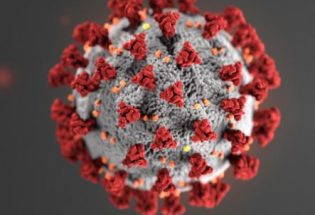
Public Health Director gives update o...
During a virtual presentation, Tuesday night by Tom Gonzales Public Health Director of Larimer County...
- July, 22 2021
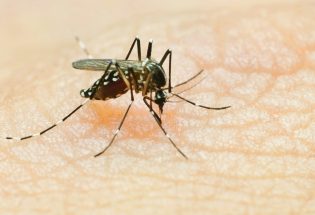
First cases of West Nile Virus detect...
The first positive West Nile virus mosquitoes have been detected in Larimer County this year....
- March, 12 2021

Tick Tock – Daylight Saving Tim...
What do the states of Arizona and Hawaii, along with Puerto Rico, Guam and the...
- December, 28 2023
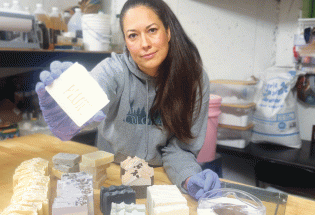
Pluie Soap features soaps, bath bombs...
Courtesy photoMaria Culligan, founder and owner of Pluie Soap, holds up...
- July, 13 2023
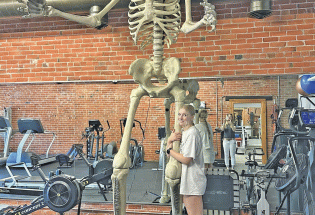
12-foot skeleton at Berthoud Athletic...
Courtesy photoDr. Carolyn Creager, owner of the Berthoud Athletic Club and...
- May, 13 2022
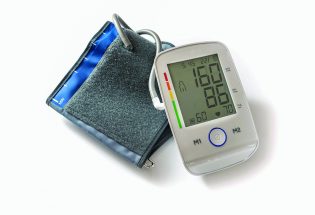
May is National High Blood Pressure M...
May is National High Blood Pressure Month. This is the month that is set aside...

POLICEBLOTTER
Community News
Northern Water sets C-BT quota at 70% for 2024
Community News

Emotions run high during Revere Property hearing
Community News
Snowpack at 119% above normal
Community News

Karspeck to serve third term as Berthoud mayor
Community News

OPINION – No bitchin’ allowed
Community News
Roy Tripi to become principal of BHS on July 1
Community News
COMMUNITY CALENDAR:
Community Calendar – add an event
Homestead Fine Art Gallery First Fridays OPEN HOUSE
03 May 4:00 PM - 7:00 PM
Homestead Fine Art Gallery First Fridays OPEN HOUSE
07 Jun 4:00 PM - 7:00 PM
Homestead Fine Art Gallery First Fridays OPEN HOUSE
05 Jul 4:00 PM - 7:00 PM
Homestead Fine Art Gallery First Fridays OPEN HOUSE
02 Aug 4:00 PM - 7:00 PM
Homestead Fine Art Gallery First Fridays OPEN HOUSE
06 Sep 4:00 PM - 7:00 PM
Homestead Fine Art Gallery First Fridays OPEN HOUSE
04 Oct 4:00 PM - 7:00 PM

